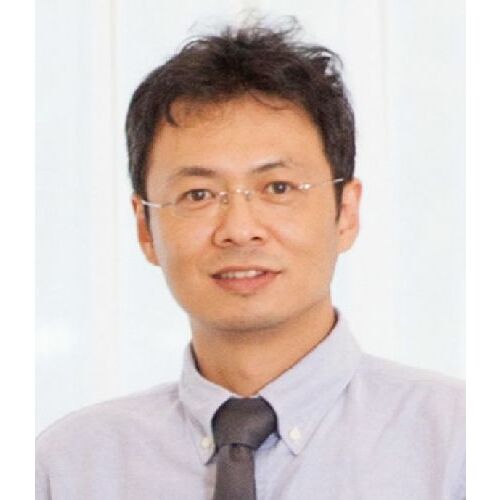
Kim Jundal Associate Professor
Kim Jundal
AffiliationDivision of Complex Biosystem Research, Department of Research and Development
Research fieldsMolecular Biology, Bioinformatics
Campus careerPh.D. (Biotechnology)
Biography University of Toyama Faculty Research Profiles
Education
Feb. 2001 B.S., Department of Food & Bioengineering, Gachon University, Korea
Mar.2006 M.S., Department of Graduate School of Life & Environmental Science, University of Tsukuba, Japan
Mar.2009 Ph.D., Department of Graduate School of Life & Environmental Science, University of Tsukuba, Japan
Job career
Apr. 2009 Postdoctoral Fellow, TARA Center, University of Tsukuba
Apr. 2012 Researcher, the school of Life & Environmental Science, University of Tsukuba
Apr. 2013 Assistant Professor, TARA Center, University of Tsukuba
Jan.2021 Associate Professor, Institute of Natural Medicine, University of Toyama
Research theme
Department
Division
Section
Project
Outline of the research
Japan has the world's longest healthy life expectancy and is also the most advanced country in terms of aging. Lifestyle-related diseases such as cancer, obesity, and cardiovascular diseases have been increasing due to changes in eating habits and environmental factors, and the diseases is changing drastically due to the declining birth rate and increasing risk of diseases during pregnancy. Therefore, in addition to the elucidation of the pathogenic mechanisms for various diseases, the development of medical technology and pharmaceuticals in the East and West based on scientific evidence to extend healthy life expectancy is considered to be a major challenge. My research goal is to incorporate the following Complex Biosystem Research (CBR) by using multi-omics analysis (transcriptome, translatome, metabolome) from the aspect of basic research.
1) Natural Medicine and genetic/metabolic information: Profiling of biological information
2) Biological responses induced by Natural Medicine: Elucidation of molecular mechanisms
3) Understanding the biological homeostasis supported by Natural Medicine
Thoughts on research
Omics data in a computer does not show the bioinformation on its own just by opening it, so we cannot understand the complex life phenomena. It is a common saying, “If there is no question, there is no answer”. Therefore, in order to understand the complex life phenomena and the essence of science, I believe that it is important to take on challenges of one's own volition and to constantly seek challenging research while experiencing unexpected setbacks.
Paper
Loss of PRMT1 in the CNS induces reactive astrocytes and microglia during postnatal brain development. Hashimoto M, Kumabe A, Kim JD, Murata K, Sowmya S, Williams A, Lu W, Ishida J, Nakagawa T, Endo M, Minami Y, and Fukamizu A. J. Neurochem. DOI: org/10.1111/jnc.15149 (2020)
Histamine receptor agonist alleviates severe cardiorenal damages by eliciting anti-inflammatory programming. Noguchi K, Ishida J, Kim JD, Muromachi N, Kako K, Mizukami H, Lu W, Ishimaru T, Kawasaki S, Kaneko S, Usui J, Ohtsu H, Yamagata K, and Fukamizu A. Proc. Natl. Acad. Sci. U. S. A. 117, 3150-3156 (2020)
PRMT1 deficiency in mouse juvenile heart induces dilated cardiomyopathy and reveals cryptic alternative splicing products. Murata K, Lu W, Hashimoto M, Ono N, Muratani M, Nishikata K, Kim JD, Ebihara S, Ishida J, and Fukamizu A. iScience 8:200-213 (2018)
Calreticulin and integrin alpha dissociation induces anti-inflammatory programming in animal models of inflammatory bowel disease. Ohkuro M, Kim JD, Kuboi Y, Hayashi Y, Mizukami H, Kobayashi-Kuramochi H, Muramoto K, Shirato M, Michikawa-Tanaka F, Moriya J, Kozaki T, Takase K, Chiba K, Agarwala KL, Kimura T, Kotake M, Kawahara T, Yoneda N, Hirota S, Azuma H, Ozasa-Komura N, Ohashi Y, Muratani M, Kimura K, Hishinuma I, and Fukamizu A. Nature Commun. 9, 1982 (2018) *These two authors contributed equally to this work.
PRMT8 as a phospholipase regulates Purkinje cell dendritic arborization and motor coordination. Kim JD, Park KE, Ishida J, Kako K, Hamada J, Kani S, Takeuchi M, Namiki K, Fukui H, Fukuhara S, Hibi M, Kobayashi M, Kanaho Y, Kasuya Y, Mochizuki N, and Fukamizu A. Science Adv. 1, e1500615 (2015)
keyword
Genomic information, Transcriptome, Translatome, Metabolome, Posttranslational modification








